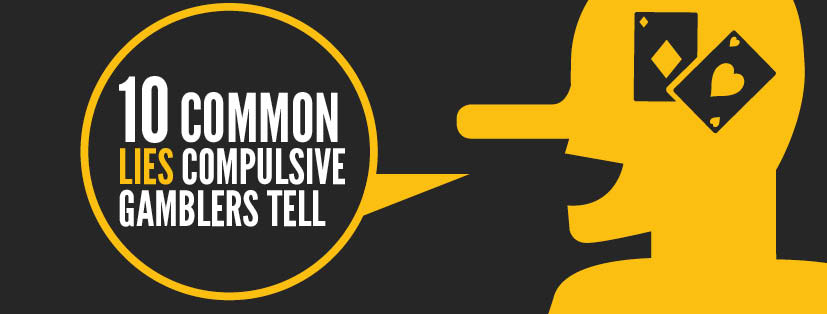My Son Has A Gambling Problem
Problem Gambling can have a devastating effect on individuals and families. Older adults can face many difficulties when their adult child has developed a gambling problem. For many, a quick and easy solution to the financial problems would seem to involve paying the gambler’s debts. This strategy is not recommended as it is rarely effective over time. Many problem gamblers will return to gambling once the financial problems have been resolved with the belief that they won’t get into the same financial trouble again and, if they do, someone will bail them out again.
‘Gambling Killed Our Son' – This Is the Unseen Addiction Crisis Spreading In Britain Britain knows it has a gambling problem. One mother wants to know why nobody is talking about its links with. Prayer For Gambling Addiction. Prayer For Gambling Addiction – Gambling is a very destructive addiction. It affects 5% of the adult population. Even though not all of them show a high-risk gambling addiction. This addiction, as any other, has a huge negative effect. Not only on the person himself, but also on his family.
Gambling addiction is a disease. It’s not a bad habit, carelessness or reckless behavior and it’s not a sign of a lack of care for the family at home. Those are misconceptions – some of the myths of problem gambling. Just like addictions to drugs and alcohol, this addiction is a disease. My husband and I became aware in February that my son from my previous marriage, is a gambler. He ran up a huge overdraft, and as soon as he was paid would withdraw it all to go to the casino to gamble. Leaving nothing to cover his direct debits.
People with gambling problems have a high probability of relapsing. Promises to stop gambling usually do not last and most will return to gambling. You can’t control your adult child’s gambling behaviour, but you can limit their access to your money for gambling. Do not give or loan money to a child that has a gambling problem. The best way for you to help them is to give them support and encouragement to seek help, either with a professional counsellor or a self-help group such as Gamblers Anonymous.
In many families with elderly parents, adult children often have power of attorney over their parents’ finances. If your son or daughter has power of attorney and you suspect they have developed a gambling problem, it is important to end that arrangement before the gambler accesses your savings to fund their gambling addiction. Talk to someone you trust so that your savings and your family assets are protected.
With so many people in New York State becoming addicted to gambling, many more family members and friends are forced to understand gambling addiction and its consequences, as well as how they should deal with the impact a parent’s gambling addiction has on their own lives.
If you’re the child of a problem gambler, we know it can be a difficult experience. You may be struggling to understand the addiction, and you might be asking, “Why can’t they just stop?” Maybe you want to help but you don’t know how, or you’re worried that your parent’s addiction may lead you to your own. If you still live at home, you might be dealing with the loss or downsizing of your home, or the selling of possessions to pay off the debt of the family.
We know this is a hard time, but you are not alone. Here are some things you should know:
Your Parent’s Gambling Addiction? It’s Not Your Fault.
Many children of problem gamblers wonder if it was something they did that drove their parents toward their addiction. That is not the case. You did not cause it, and you cannot single-handedly stop it. Remove that pressure from yourself and do not feel guilty. It was no choice or action of yours that caused this addiction.

It’s Not a Choice – It’s a Gambling Disorder.
My Son Has A Gambling Problem Involving
Gambling addiction is a disease. It’s not a bad habit, carelessness or reckless behavior and it’s not a sign of a lack of care for the family at home. Those are misconceptions – some of the myths of problem gambling. Just like addictions to drugs and alcohol, this addiction is a disease. It’s a mental health issue, and that is why it is so hard for problem gamblers to stop.
Gambling addicts feel a “high” when they gamble – just as alcoholics do when they drink and drug addicts do when they use their choice of legal or illegal drugs. The only difference is gambling doesn’t require problem gamblers to ingest anything to reach a euphoric state.

Help is Available.
Counseling, whether in one-on-one sessions or support groups, is available throughout New York State for problem gamblers and for anyone affected by problem gambling.
While many family members may accompany the gambler to private therapy or counseling sessions, others find it valuable to go to Gam-Anon meetings attended by significant others, family members and friends of people with addictions. Gam-Anon provides you with the opportunity to share your story, concerns and frustration with people who have been through the same experience. You’ll feel less alone, and you’ll be able to get advice and emotional support from people who understand how you feel and how you can move forward.
How To Help My Son Who Has A Gambling Problem
Your Relationship May Be Strained Now, But It Can Be Repaired.
Gambling addiction can be cured, and work can be done to fix damage done, such as the accumulation of debt, the loss of property and the loss of the trust of family, friends and employers.
You may be angry at your parent. They may have lied to you in order to gamble, or simply kept the truth from you for months or years. Their financial situation may have jeopardized your lifestyle or purchases you had expected to rely on, such as money put away for a new family car or the savings that had been kept for your college tuition. You may have to deal with the reactions of other family members, friends, neighbors or coworkers who have found out about your parent’s addiction and attempt to discuss it with you.
Your relationship with your parent can be repaired. It may take time, and it will take the work, but together you can begin communicating and return to a relationship that’s open and honest.
Need help?
If you’re ready to talk to a counselor or support group about your family member’s gambling, we are prepared to help you immediately. The NYS HOPEline offers help and hope to people every day. You can call toll-free anytime for assistance. Every call is anonymous and confidential.

My Son Has A Gambling Problem Solving
Call 1-877-8-HOPENY.